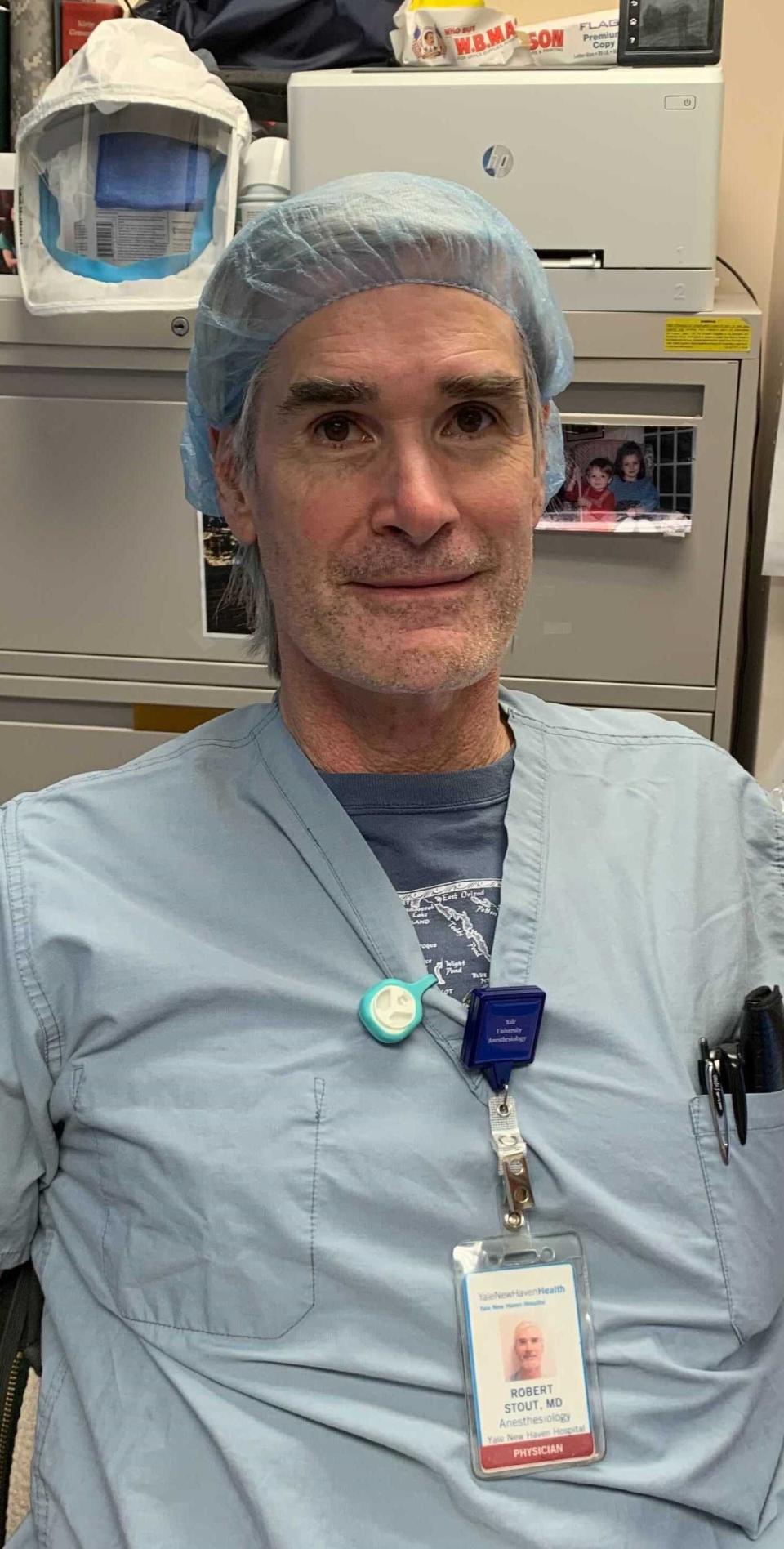A wearable COVID tracker? This clip-on accessory can detect the virus
You may soon be able to get a wearable device that would help alert you to potential COVID-19 exposure.
Today, we usually only learn about exposure to COVID when we find out someone we've been in contact has tested positive or symptoms of our own arise. Or perhaps you've scrambled to get at-home tests or queued up for a laboratory-processed COVID test. Also, many states have smartphone apps that can alert us to possible exposure, but that requires people to opt in.
It's not available for everyone yet, but Yale University researchers have developed an easy-to-use clip-on device that can detect low levels of SARS-COV-2, the virus that causes COVID-19, in the air around you, according to research published Jan. 11 in the peer-reviewed online journal Environmental Science and Technology Letters.
Until now, large and costly air sampling devices have been used to detect virus droplets in the air, usually from infected persons coughing, sneezing, speaking and breathing.
In an effort to make air sampling more accessible, experts in Yale's School of Engineering and Applied Science, and the School of Public Health designed the Fresh Air Clip, a 3D-printed air sampler measuring about 1 inch in diameter that collects samples of air on a film inside the badge-shaped device. It doesn't have a power source.
Omicron is not that mild: 50,000 to 300,000 more US deaths projected by March: COVID-19 updates
COVID resource: Your guide to the coronavirus and COVID-19

"The Fresh Air Clip is a wearable device that can be used to assess exposure to SARS-CoV-2 in the air. With this clip we can detect low levels of virus copies that are well below the estimated SARS-CoV-2 infectious dose," said the study's author and chip creator Krystal Godri Pollitt, an assistant professor of epidemiology at the Yale School of Public Health and a Yale chemical and environmental engineering professor, in a press release about the research.
"The Fresh Air clip serves to identify exposure events early, allowing for rapid action to be taken to get tested or quarantine, preventing viral spread should the participant not have had this early detection of exposure," she said.
The researchers had 62 test subjects wear the clip between January and May 2021. Some wore the clip when working in restaurants, homeless shelters and health care facilities, while others wore them during daily activities such as shopping and exercising.
Participants were asked to wear the clip at work for five consecutive days. Then, the film inside the clips was tested for the presence of the virus.
Researchers found evidence of COVID in five clips – four worn by restaurant workers, one by a person working in a homeless shelter – and detected levels of the virus below the amount that infects someone.
"The clip is intended to help prevent viral spread and offer guidance on where additional infectious disease control measures are needed," Godri Pollitt told USA TODAY.
Researchers are using the Fresh Air Clips in additional studies at health care facilities in Connecticut and hope to make them available to members of public in the future.
While the Yale researchers had test subjects wear the clips for five days, the film within could be checked more frequently if a restaurant, hospital, shelter or other business wanted to, Godri Pollitt said. And testing could be done onsite, also.
"We are keen to expand use of the Fresh Air Clip and are exploring how best to scale application in workplaces, schools and with community members," she said. "We are currently using the Fresh Air Clip to monitor airborne viral exposures in high-risk settings and have risk of SARS-CoV-2 transmission but also other common respiratory virus, such as influenza and rhinovirus."
Follow Mike Snider on Twitter: @mikesnider.
This article originally appeared on USA TODAY: COVID detector: Yale researchers develop a wearable clip

 money
money 